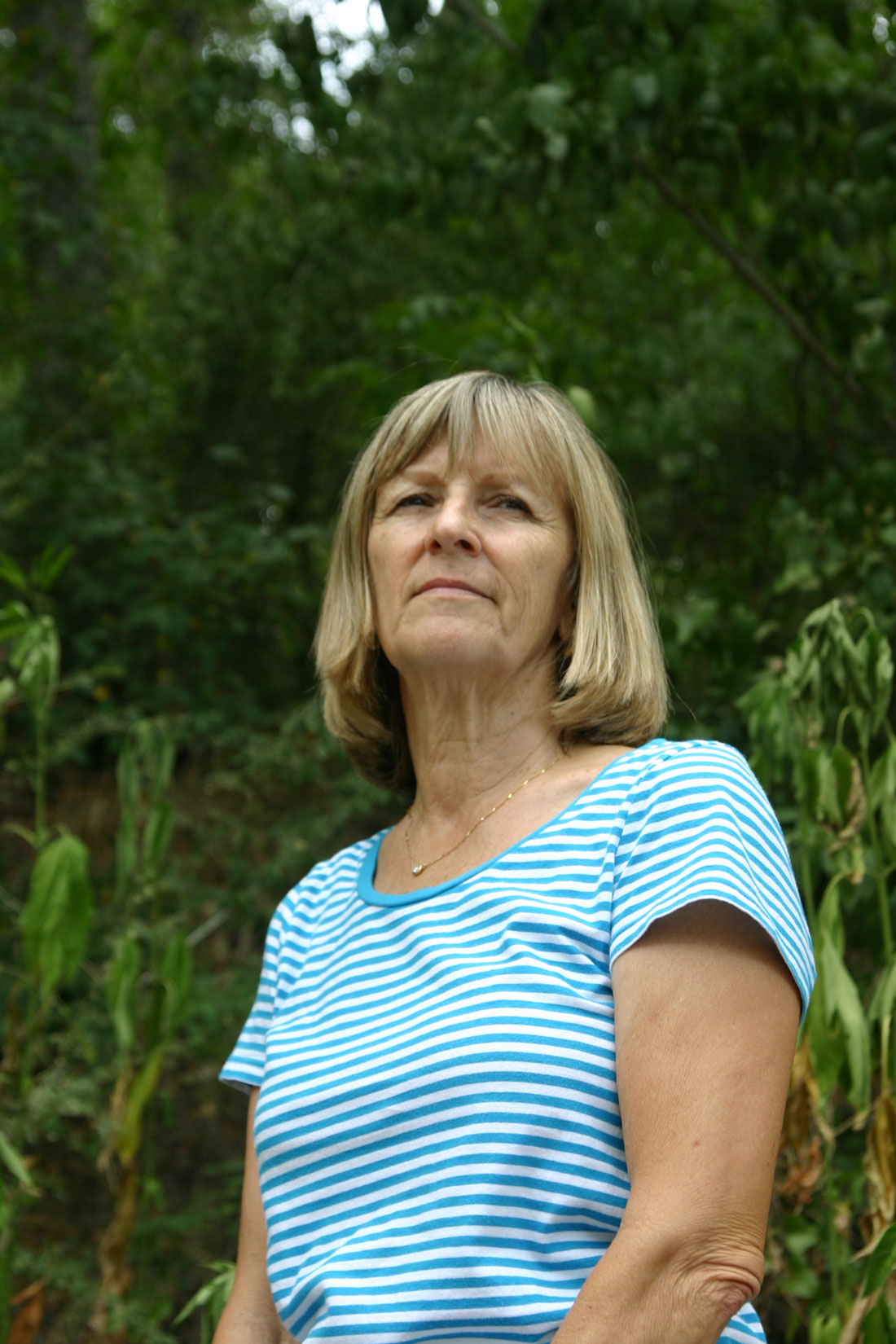The request seemed simple. A Fort Worth couple’s backyard pool had been partially built on city property years ago, long before the couple bought their house. In 2000, the couple asked the city to vacate 6,000 square feet of land and allow them to buy it, pay taxes on it, and make it an official part of their property.
Simple requests can get complicated in a hurry when a neighborhood is involved.
Twelve years later, neighbors are still choosing sides. A petition has been circulated. Historic records are in dispute. And a Fort Worth City Council decision looms, one that could eventually change the face of Oakhurst Scenic Drive.
The dispute revolves around whether the sliver of land being sought by Cyndy and Gary Walters is parkland. It’s part of a long swatch of steep city-owned hillside that serves as the wooded greenbelt lining Oakhurst Scenic Drive just east of I-35 near downtown. Without the greenbelt, the drive wouldn’t be all that scenic.
About two dozen houses have backyards that abut that city-owned slope. Most homeowners know where their backyards end and city land begins, but over the years many have built tool sheds, greenhouses, pools, decks, and other amenities that encroach on the city property.
The Walterses bought their house in 1998 with the understanding that about half their backyard — including the part with the pool and some outbuildings — was actually city property. They asked the Planning Commission to vacate the land and allow them to buy it. The couple worried that they might have trouble selling their house in the future without clear title to the property.
But there was a problem: Was the property considered parkland? A public hearing and a voter referendum are required before a city can sell off parkland.
Another fear is that transferring ownership to the Walterses could set a precedent and lead other homeowners to seek similar deals, making the backyards and perhaps the hillside vulnerable to clearing or development.
“My fear is not that the Walters will clear their trees or their lot, but the next person who moves there might,” Oakhurst Neighborhood Association president Ginger Bason said. “If the city permits this to happen, there is a lot of property along Oakhurst Scenic Drive that this could impact. If everybody along there could do it, and two or three of them get a good deal from a developer, all of a sudden we’ve got condos being built there like they did on Samuels Avenue [near the downtown Trinity River bluff].”
In 2000, then-Assistant City Attorney Sarah Fullenwider tried to clarify the situation in an inter-office memo sent to officials, including Parks and Community Services Director Richard Zavala. Fullenwider wrote that she and other city staffers had researched various city documents dating back to the 1930s and determined that the property in question was city-owned but not necessarily parkland. She examined minutes from park board meetings, Tarrant County Commissioner’s Court meetings, articles about local history, and deeds, she said.
“There is no verbiage in any of the deeds to indicate that this property was dedicated as a park or for park purposes,” Fullenwider wrote on Dec. 12, 2000. “The only clear intent in all of the material researched was the desire of the parties to construct a scenic roadway.”
Her conclusion: The wooded hillside was donated to the city years ago for use as a scenic drive and was therefore intended as a public roadway rather than parkland. The Walters’ request to vacate land could be heard by the Planning Commission.
Years passed. The city council was ready to discuss the issue on Aug. 14.
However, leaders of the Oakhurst Neighborhood Association hope to convince the city council to hang onto the land. They wanted the city to offer an encroachment agreement that would give the Walterses’ legal permission to have structures on the city property but wouldn’t involve the city relinquishing ownership. Oakhurst is a stone’s throw from I-35 — a highway due to be widened dramatically in the coming years. Widening will move the highway and its associated traffic noises even closer to Oakhurst, a historic neighborhood that was established in the 1920s, long before I-35 was built.
“With this looming expansion of I-35, the protection of the buffer we have between our neighborhood and the highway is even more important,” Bason said.
What’s more, the homeowners association researched city records, including some of the same documents seen by Fullenwider, and came to a different conclusion.
“Oakhurst contends there is more than adequate proof that this is park property,” Bason said.
Her proof: a foot-thick file containing maps, surveys, deeds, newspaper clippings, and various other reports. Oakhurst Scenic is even discussed in a Fort Worth Board of Park Commissioners report from 1930 as being part of a citywide system of greenbelt scenic drives. The report describes “a connected park system following the river and creek valleys around and through a large part of the city,” including along Oakhurst Scenic.
“While the lands in these valleys would generally be termed parkways, they are in effect long and continuous parks, providing places for local as well as general recreation needs and the setting for through parkways roads, or scenic ways, connecting the various parts of the city,” the report said.
The Walterses sent the city a check for $4,487 in 2006 as part of their application for buying the land. Bason said the city accepted the check but never approved the transaction and that the couple therefore still has no claim to the property.
A different property owner made a similar request for the city to vacate land on Oakhurt Scenic in 1986, and he too sent the city a check for more than $4,000. Two years later, the city manager’s office recommended that city council members deny the request and return the check because “information has been discovered that indicates the property was purchased for park use.”
In the Walters case, the neighborhood association’s 32-member executive board voted unanimously to urge the city to establish an encroachment agreement rather than to vacate the land.
Meanwhile, the Walterses circulated a petition among their neighbors asking for support. Numerous people signed, including next-door neighbor Jeff Redding. He too has outbuildings in his backyard that encroach on city property.
“There are other battles the neighborhood association could put their time and energy into,” he said.
Redding doesn’t worry that transferring the land to individual property owners might make the hillside vulnerable to clearing or development. City officials could just as easily decide to buy out homeowners and clear the way for development, he said, just as they’ve done for the Trinity River Vision project near downtown. After all, Riverside Park lies between I-35 and Oakhurst Scenic Drive. City officials have discussed using it as flood storage for the Trinity River project.
The Walterses, who did not respond to interview requests for this article, asked the city to postpone the Aug. 14 hearing. The city council is tentatively scheduled to hear the debate on Sept. 11.













Another meddling homeowners association sticking their noses in where it shouldn’t.
This is a voluntary (optional) neighborhood association with whopping $20 annual dues. And the neighborhood itself—including the Oakhurst Scenic Drive parkway—is listed with the National Register of Historic Places as a Historic District. Neighborhood associations exist to protect and enhance the neighborhood, so ONA’s stand here seems logical. The real issue here is that the homeowner closed on a property despite the survey turning up encroachments. The homeowner called the city about this, and was given the impression that it would be taken care of, but the homeowner did not obtain formal approval. Then the city made the mistake of accepting the homeowner’s money for the parcel, despite rejection of the request to vacate the property. Having suffered through some difficult real estate transactions, I understand where the homeowner is coming from. But rather than start a trend of vacating park land, the city needs to refund the homeowner’s money (NOW), and perhaps the homeowner should pursue an encroachment agreement (the typical recourse in these situations).